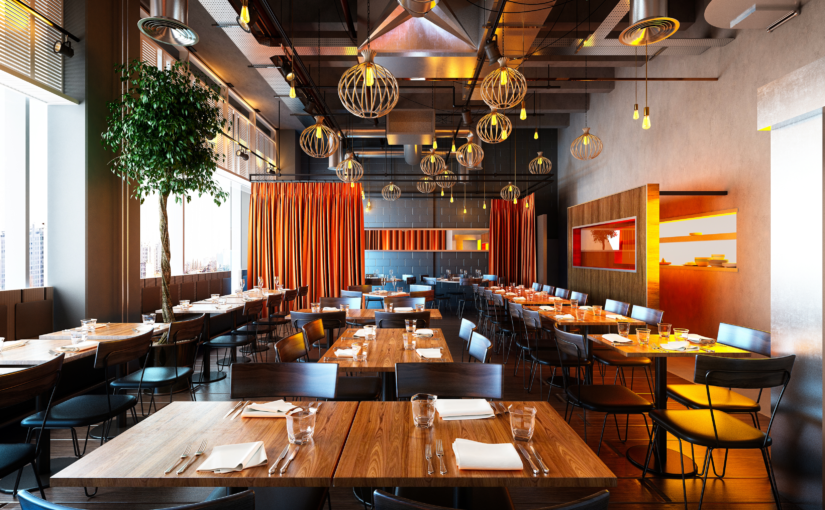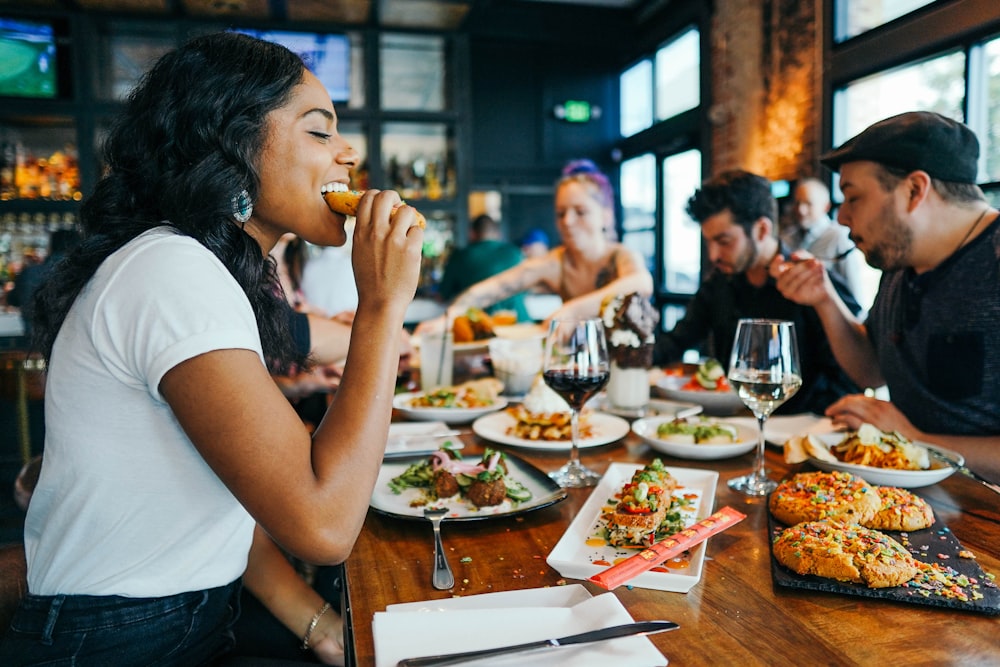For many, opening their own restaurant is a dream come true. One of the best ways for first-time business owners to get started is to purchase an existing restaurant. It’s a great opportunity for new restaurateurs to dive right into a thriving business.
Not having to pay for expensive renovations or obtain costly licenses and operating permits can greatly reduce your initial capital outlay and save money. In addition, grease traps, ovens, and kitchen hoods, among other special appliances, are probably already set up correctly.
If you’re seriously considering acquiring an existing food business, you’ll need to make a crucial choice: which restaurant is the one for you?
Before agreeing to the terms of the sale, it’s essential to put some time into your initial research. Here are some things to think about before putting your signature on the dotted line:
Why Is the Restaurant Owner Leaving the Restaurant Business?
When looking to buy a restaurant, one of your first questions should be about the previous owner’s motivation for selling. But keep in mind that business owners may be hesitant to give you an honest response if they believe it could affect the sale of their company.
Buying a business means taking on all its problems and successes, so it’s crucial to understand why the seller is parting ways. This could indicate that it’s time to rebrand or try out some new business models to increase table turnover if the restaurant is facing financial difficulties.
However, keeping the restaurant’s brand, name, and menu intact may be possible if the previous owners are merely retiring after a lengthy career in the food service industry and the finances are sound.
What Is the Condition of the Existing Restaurant?
Another consideration is the restaurant’s condition. Did the previous owner keep everything up to date and in good condition? Check the restaurant out and make sure if the equipment will need updating before you acquire it. If you know the condition of the restaurant going into the purchase, you will know what to expect and if there will be any extra costs. However, this may not be something you are willing to do.
For the best purchase, all the restaurant’s assets, fixtures, and appliances in the building must be in good working order, and the structure itself must be in an acceptable state. If they are, then buying an existing restaurant can be a sound strategy for breaking into the lucrative food service market.
Get in touch with professionals to look at the structure, pipes, HVAC, and appliances in your kitchen. How old is the restaurant’s equipment? When did the owner last get it checked out? When it comes to safety, is this equipment up to par with the latest standards? Is there something that needs fixing or replacing? It is important to insist that the seller address any broken restaurant equipment before moving forward with the transaction.
Restaurants that require extensive repair may not be a good investment as it would result in huge expenses. In addition, if the establishment is in poor shape, it could drive away potential customers — no amount of restaurant marketing will make customers turn a blind eye to a poorly-kept building.
What Is the Value of the Restaurant?
When buying a restaurant, it’s vital to make sure the restaurant’s value justifies the price you pay. Several factors contribute to a restaurant’s final value, including the cost of the equipment, the popularity of the neighborhood, its financial health, and the state of the restaurant industry.
However, other intangible aspects can raise or lower the value of an existing business. For instance, it could have a higher value if it is a well-known landmark in the area.
The value of a restaurant can’t be estimated by the current owner alone; actual cash flow is required to get the big picture. Ask about the company’s income and expenses, labor costs, tax returns, food costs, financial statements, balance sheets, vendor relationships that impact the restaurant’s food shipments, and any evidence of revenue or losses accrued over time.
The next step is to look at how the price stacks up against other restaurants. By doing your research, you will know whether you are paying a fair price.
You should also consider whether the restaurant’s long-term value meets your expectations. Think about how it can expand in the future. The restaurant’s value may be higher than average if it shows signs of great potential.
Does the Community Enjoy the Restaurant?
The popularity of the restaurant among locals is crucial. If the restaurant’s failure can be directly attributed to unfavorable online reviews, it might be due for a rebrand.
A quick Google search will tell you a lot about the restaurant’s reputation. Don’t stop at the first page of search results; delve deeper into restaurant news.
Look into the business’s online reputation by reading customer reviews on sites like Yelp, Facebook, Google My Business, FourSquare, TripAdvisor, YellowPages, and even the Better Business Bureau. Take notes on how you would handle any concerns you find.
Where is the Restaurant Located?
As they say, “location, location, location,” — it may make or break a company, and the same is true in the restaurant business. While a good location is crucial to the success of any restaurant, it is especially important in the competitive food service industry. Here are some factors you need to consider:
Visibility and Access
It is important for customers to be able to find the restaurant quickly and easily. Both motorists and pedestrians using the surrounding road and sidewalks should have no trouble getting there.
Development of the Vicinity
On top of that, it needs to be in a densely populated area that is home to both commercial and residential buildings. Local restaurants in locations with more vacant areas may find themselves in tough competition.
Diversity of Customer Base
The ideal location for a busy restaurant would be in an area frequented by a wide range of people, including residents, tourists, students, office employees, and even government employees.
Area Traffic
Choosing a spot on the main road or a pedestrian-friendly side street might increase your business’s visibility and foot traffic.
Demographics in the Neighborhood
The area should be well-established economically, with a high density of shops and offices and a population profile that favors long-term residents with higher levels of education.
Room for Expansion
The building should be able to accommodate future growth, giving you room to breathe and rearrange as it suits your needs.
Prominent Establishments Nearby
At least one major traffic generator, like a theater, mall, university, hospital, or popular tourist destination, should be within walking distance. Do not choose restaurants in places like office parks, which are only open during specific hours.
Does it Have a Liquor License?
You probably don’t need to have any prior restaurant experience to recognize that alcohol is a major source of revenue for restaurants. Having a transferable liquor license that already exists is a plus.
Since most states have a certain number of liquor licenses available, getting a new one could be difficult, time-consuming, and expensive. That’s why you should apply for a license as soon as possible if there isn’t already one or if the current one can’t be transferred.
You should also be aware of the hurdles preventing you from securing a license. Submitting a business site plan and floor plan to the zoning agency or equivalent in your city may be necessary. Scheduled fire and health inspections, as well as a thorough background check, will be the minimum requirements.
Does it Have Existing Violations in the Restaurant Industry?
In the hospitality industry, violations can be catastrophic. If you buy an established business in some states, you may be responsible for the payment of back taxes and any debts or lawsuits the previous restaurant owners may have had against the property. This is why knowing the restaurant’s status is crucial.
Inquire with the owner about any unpaid sales tax, overtime, and pest or health code violations that could endanger your ability to run the business profitably. You can also check the restaurant’s most recent inspection results by looking them up on local government websites.
The Bottom Line for Buying Restaurants
Buying an existing restaurant is a big decision that requires careful thought. Potential investors like you must pay attention to the factors that differentiate between a good and bad purchase.
If you take the time to answer the seven questions we’ve outlined here, you’ll give your new restaurant the best possible shot at success.
Are you looking to buy a restaurant? Armen Nazarian Business Brokers can help. We’ll help you narrow your options until we find the perfect restaurant, and once you’ve found it, we’ll also help you negotiate the purchase price.
Learn more about what we offer by calling 248-231-7714 or browsing our website. Feel free to contact us, and we will gladly assist you in your search for the right restaurant.

